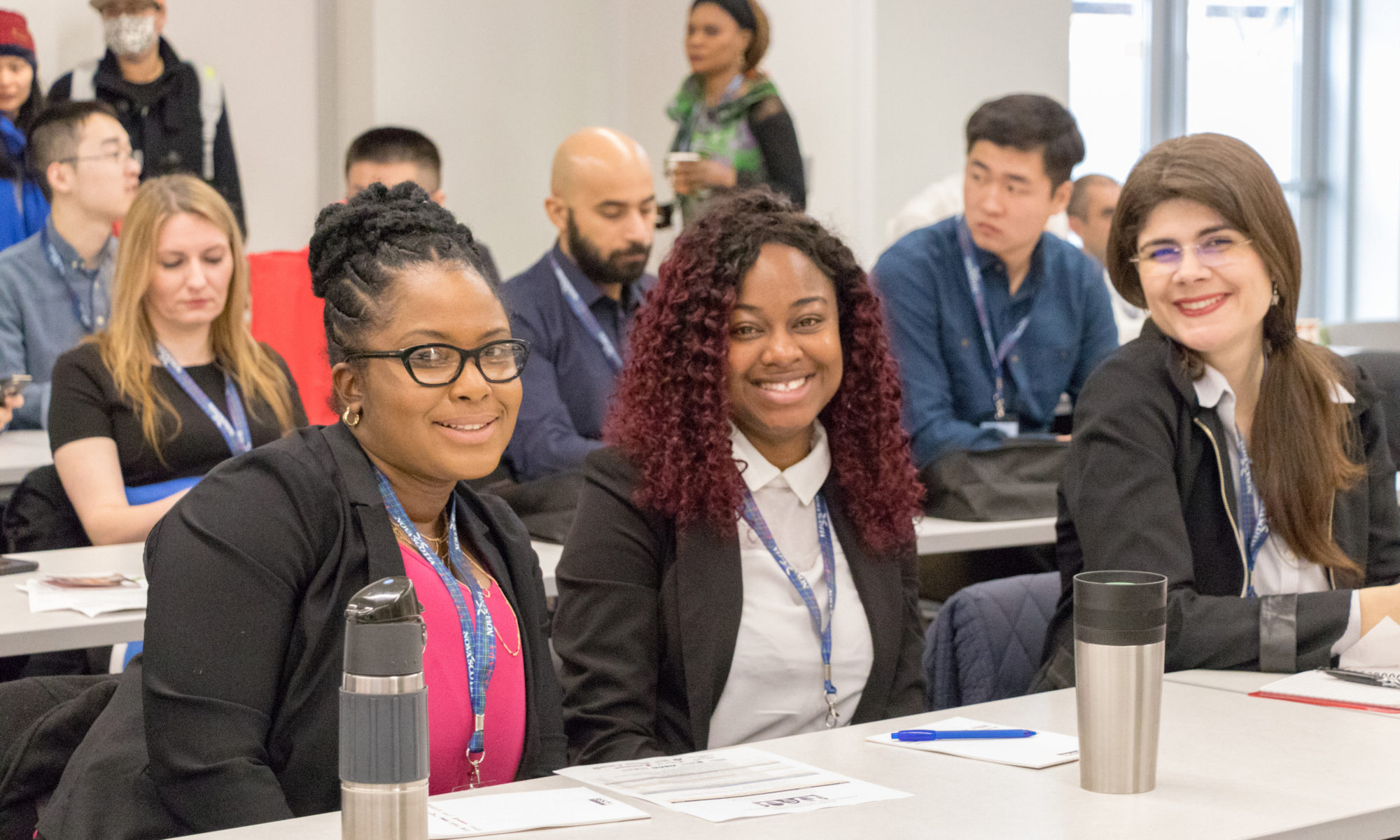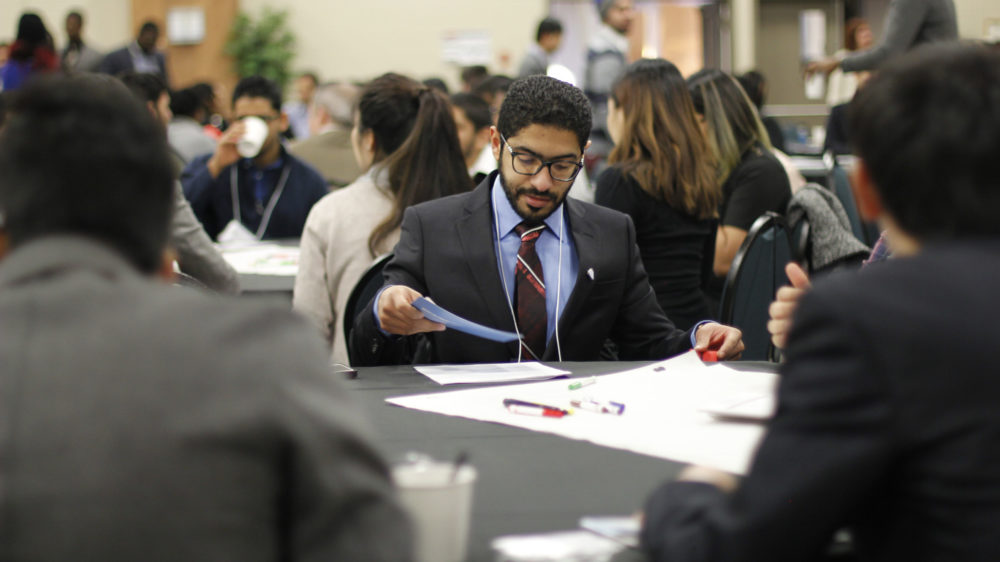
Opinion: The danger of over-selling the Canadian dream to international students
Cover Photo: International students attend the BEST conference (Building Employment and Successful Transitions) in Halifax to discover programs and opportunities for them to stay and work. Photo: Mohammad Al Masalma/EduNova
The population of international students in Canada is roughly equal to the 10th largest city in the country. There are now more foreign citizens authorized to study in Canada than there are people in London, Victoria or Halifax.
The number of international students with study permits has almost doubled in five years – and that doesn’t count students who are here for short-term language programs. The surge has filled empty university seats, stimulated the economy of every region, brought a welcome vibrancy to campuses and communities and created a flow of new immigrants to provinces that are struggling to maintain their population
That’s all good.
But our welcoming immigration policies and drive to increase student numbers may backfire if students feel they were promised something the country – and its educational institutions – can’t deliver.
RELATED: Keeping international students in Atlantic Canada: EduNova’s big experiment
The quest to find quality work after graduation is one example of how pre-arrival expectations and the on-the-ground reality often differ. Almost all university graduates struggle to find that crucial first job in their field, but it is harder for international students.
A 2016 federal report found that international students earn roughly half that of their Canadian counterparts after graduation. A subsequent report confirmed that finding, and attributed the earnings gap to differences in work experience prior to graduation.
Atlantic Canada has a significant labour shortage, but there is no organized attempt to link the studies of international students to labour market needs. The largest single area of study for post-secondary international students in Halifax is business, but there is no clear need for more business graduates in Nova Scotia.
Some of the most acute labour shortages in Atlantic Canada are in skilled trades and professions: electricians, nursing assistants, day care workers, cooks. In Nova Scotia, most of those skills are only taught at the Nova Scotia Community College, but, unlike the university sector, NSCC has not had a mandate to internationalize.
The employment problem is complicated by the fact that international graduates who want to become permanent residents must find skilled or professional work almost immediately after graduation. Canadian-born graduates have time to test out different jobs, begin at the entry level and explore their future. International students need a year of full-time high-level Canadian work experience to qualify for most immigration programs, and they only have three years to obtain it. Every spring, scores of international commerce graduates are horrified to discover that even a job as a bank teller won’t give them the work experience required to qualify for permanent residency.
That’s one reason that the House of Commons Standing Committee on Citizenship and Immigration recommended that students graduating from Atlantic Canada colleges and universities receive a five-year open work permit instead of the usual three-year permit.
(Students can qualify for the Atlantic Immigration Pilot without work experience, but there is little incentive for employers to sponsor students through AIP.)
That difficulty finding work has also led to exploitation. Some employers force students to pay them for a job that will lead to immigration.

Although international students earn lower wages than Canadians after graduation, 70 per cent of students who obtain a Post-Graduation Work Permit do go on to become permanent residents.
Ottawa policy makers have been worrying about the experience and expectations of international students for years. One reason that they excluded private college graduates from getting a Post-Graduation Work Permit was a concern that foreign students might be lured to Canada by for-profit diploma mills that charge high tuition for programs that lead to dead-end jobs.
Post-graduate employment is not the only expectations gap for international students in Canada. Last fall, the Canadian Alliance of Student Associations issued a report that highlighted concerns about tuition, housing, students services, immigration advising and academic services for international students.
CBC News ran a series this winter exploring the experience of international students at Cape Breton University, where 56 per cent of enrolment is international. CBC found a community that was eager to welcome the new population. But it also found students who didn’t know how to dress for winter, had been told that they would have no trouble finding part-time work and that the cost of living was low. CBC reported that international students were using the food bank in Sydney, more than 500 international students applied for 20 jobs opening up at a new Dollarama and one student was perplexed when she couldn’t land a job in Sydney during Christmas week.
A student who shows up in Canada a few days after Christmas without a winter coat, expecting to find work before New Year’s is going to be deeply disappointed.
The question of who is to blame for creating false expectations may be less important than the question of who will suffer if students lose faith in their Canadian dream. Students will suffer, but so will their schools, their communities and the economy.
It is the experience of Australia that worries many. That country lost half its Indian students in a single year, and suffered a decline in international students of more than 18 per cent between 2009 and 2012.
There were many reasons for that decline, but a failure to meet student expectations was one of them. No one is saying that Canada faces a similar crisis of confidence, but no one is saying that can’t happen either.






